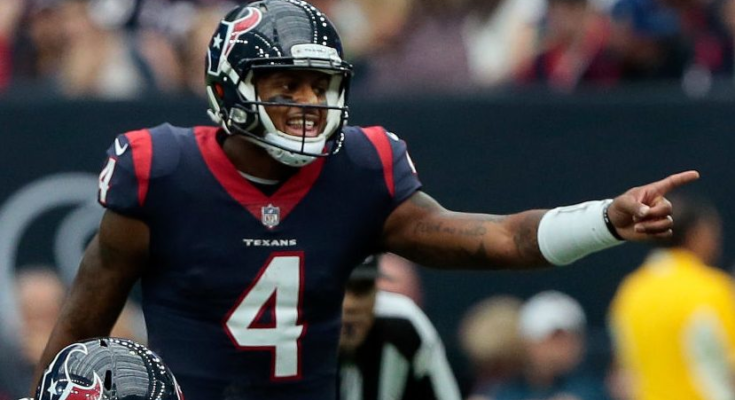Many assume that Browns quarterback Deshaun Watson eventually will be suspended for the civil and criminal allegations that have been made against him. The number — 22 civil complaints and two additional criminal complaints who did not sue Watson — is large enough to be troubling on its face. Whatever the critical mass of complaints that will naturally cause concern, 24 is on the wrong side of it.
The league knows this. Some have concluded that the failure of the league to take action against Watson means that the league won’t, at least not until the 22 civil cases are resolved. That’s possibly a misreading of the situation.
The league hasn’t placed Watson on the Commissioner exempt list (a fancy label for paid leave) because it hasn’t had to. He didn’t try to play for the Texans in 2021. He wasn’t traded to a new team that would have tried to put him on the field. Now with the Browns, he won’t play until August at the earliest.
The league has made the Personal Conduct Policy more than broad enough to permit paid leave, even in the absence of criminal charges. “When an investigation leads the Commissioner to believe that a player may have violated this Policy by committing any of the conduct identified above,” the Policy explains, “he may act where the circumstances and evidence warrant doing so. This decision will not reflect a finding of guilt or innocence and will not be guided by the same legal standards and considerations that would apply in a criminal trial.”
The key words are “may have violated.” With 24 people accusing Watson of sexual misconduct during massage therapy sessions and Watson’s lawyer admitting that some massage therapy sessions did indeed become voluntary sexual encounters, there’s enough for the Commissioner to conclude that Watson “may have violated” the Personal Conduct Policy.
Remember, Ben Roethlisberger was suspended six games (reduced to four) in 2010 for two sexual misconduct allegations, neither of which resulted in criminal charges. In 2017, Ezekiel Elliott was suspended six games for domestic violence allegations that ended in neither criminal nor civil claims. The league can, and will, do whatever it chooses — and the decisions quite often will be driven not by notions of fairness and justice but by balancing the P.R. consequences of taking action and not taking action.
On Monday, I suggested that the league should tell Watson that he can either settle the cases and take an unpaid suspension to start the season or keep fighting the cases and be placed on paid leave until they are resolved. I now believe the league won’t do that. The league won’t do that because the league doesn’t do that. It doesn’t telegraph its plans or tip its hand.
The league has learned to keep its head low and its mouth shut in these matters, or as long as it can. The league will act when the time comes to act. And I’m currently confident that, if 22 civil cases remain pending against Watson when it’s time to play games, Watson won’t be playing in those games.
The league won’t tell Watson or the Browns that. The league will expect Watson and the Browns to figure it out on their own. And the league will shed no tears and make no apologies if/when they decide to place Watson on paid leave, if Watson fails to get the cases settled before football season rolls around.



